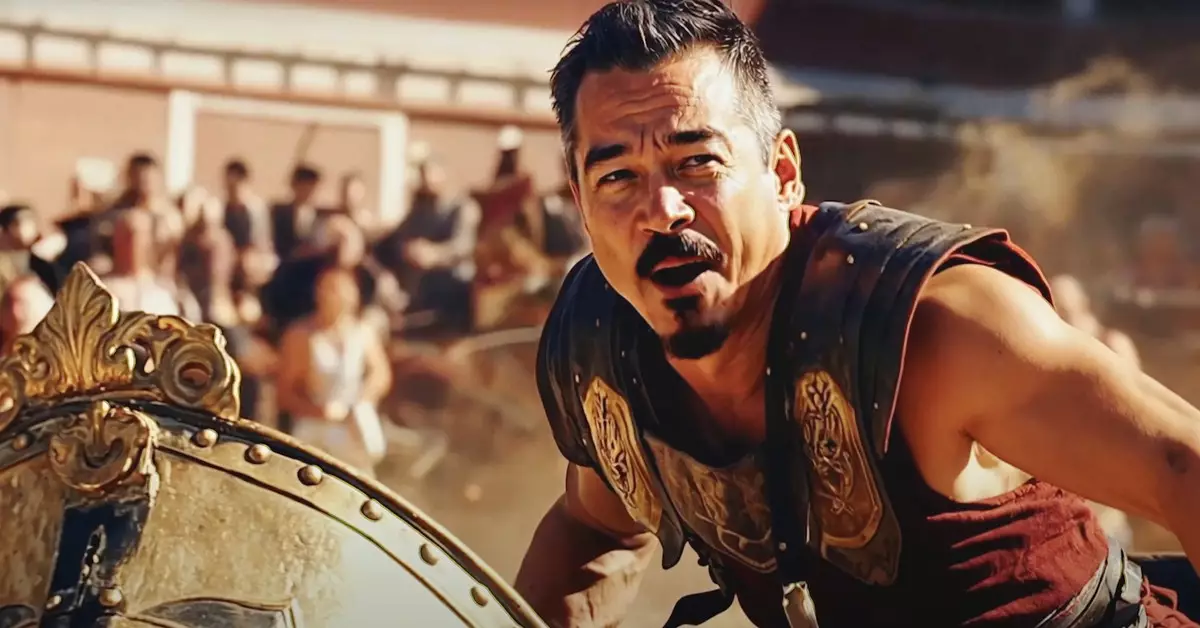The rapid advancement of artificial intelligence continues to penetrate various creative industries, including filmmaking. A noteworthy entrant in this arena is TCL, a brand known primarily for its consumer electronics. This year, TCL embarked on an ambitious yet controversial venture: the production of several AI-generated short films. While one might have hoped these films would be ushering in a new era of cinematic storytelling, the reality appears to be rather different. In an effort to assess and critique these films, we take a closer look at the selection they offered and evaluate their merits—or lack thereof.
The first offering, “Next Stop Paris,” set an expectation that was not met, emphasizing the limitations of AI technology in creative storytelling. From the very start, viewers were confronted with characters whose mouths did not align with their speech, and their exaggeratedly limited facial expressions were unsettling. This cinematic misfire sparked considerable online critique, questioning the viability of AI in narrative filmmaking. Surprisingly, rather than retreating from this path, TCL launched into a wider range of AI-generated projects, prompting audiences to engage with their work further.
TCL has rolled out Five AI-generated short films, each more perplexing than the last. Although there’s a slight improvement in animation quality compared to “Next Stop Paris,” these follow-ups still highlight the glaring shortcomings inherent in relying on AI for artistic expression.
The first film, which draws parallels to Ray Bradbury’s haunting short story “All Summer in a Day,” tells the tale of a girl whose longing to see sunlight culminates in a bizarre journey through her school’s sewer system. The narrative is convoluted, obscured by confusing animation sequences and unrealistic, awkward character movements. While the premise holds the potential for depth and emotional resonance, the lack of coherent storytelling and genuine expressiveness diffuses any sense of empathy the audience might feel for the protagonist.
Project Nexus: A Trailer, Not a Film
Next in the lineup is “Project Nexus,” which introduces an unusual storyline but fails to deliver a satisfying viewing experience. This short film is styled more like a teaser than a fully fleshed narrative, ending abruptly with an unresolved storyline that leaves viewers yearning for more—only not in a good way. While the concept of characters gaining supernatural powers has potential, the execution falters under the weight of mediocre animation and uninspired voice performances. As much as one hopes for inventive storytelling, these films consistently fall short, ultimately feeling like an exercise in futility.
Docufiction Gone Awry
The third effort, which attempts to blend real human experiences with AI-generated recreations, raises ethical questions about authenticity in storytelling. Presented as docufiction, this film recounts Dr. Warren Brown’s harrowing mountain accident through both live-action and AI modes. However, the jarring transitions between real-life footage and AI depictions disrupt the viewing experience, leaving audiences questioning the film’s veracity. Particularly unsettling was a bizarre sequence of visual metaphors that diminished any gravity the story attempted to convey, culminating in an ending so outlandish that it felt more like a parody than a poignant story.
The fourth film, “The Audition,” starts off light-hearted but quickly devolves into a series of unoriginal comedic tropes. The premise of an actor trying to meet the whims of a fickle casting director might resonate, yet it becomes lost among cliched humor and uninspired AI transformations that lead to eye-roll-worthy moments. Instead of sparking insightful commentary on the absurdities of the acting industry, this film feels like an underwhelming exercise that fails to engage its audience on any meaningful level.
An Unsettling Transformation
Finally, the last offering in this sequence explores a surreal transformation narrative, but its disquieting imagery and weird pacing add up to something more disturbing than profound. The gradual metamorphosis of a woman into a slug serves as a chilling metaphor for her isolation and suffering—yet the execution lacks subtlety and depth. Instead of fostering empathy, viewers are left feeling unsettled by the grotesque imagery and tangential storytelling choices that diminish any emotional impact.
TCL’s foray into AI-generated filmmaking reveals a pressing truth: while AI technologies have made significant strides, they are far from achieving the grace and nuance that traditional filmmaking demands. Each of the five films, while ambitious, underscores the current limitations of the medium and serves as a stark reminder that storytelling encompasses far more than simply stringing together animated visuals. As it stands, TCL’s experiment invites us to reconsider the role of human creativity amid the rise of AI, highlighting the intricate balance that must be struck between technological innovation and the timeless art of storytelling.

